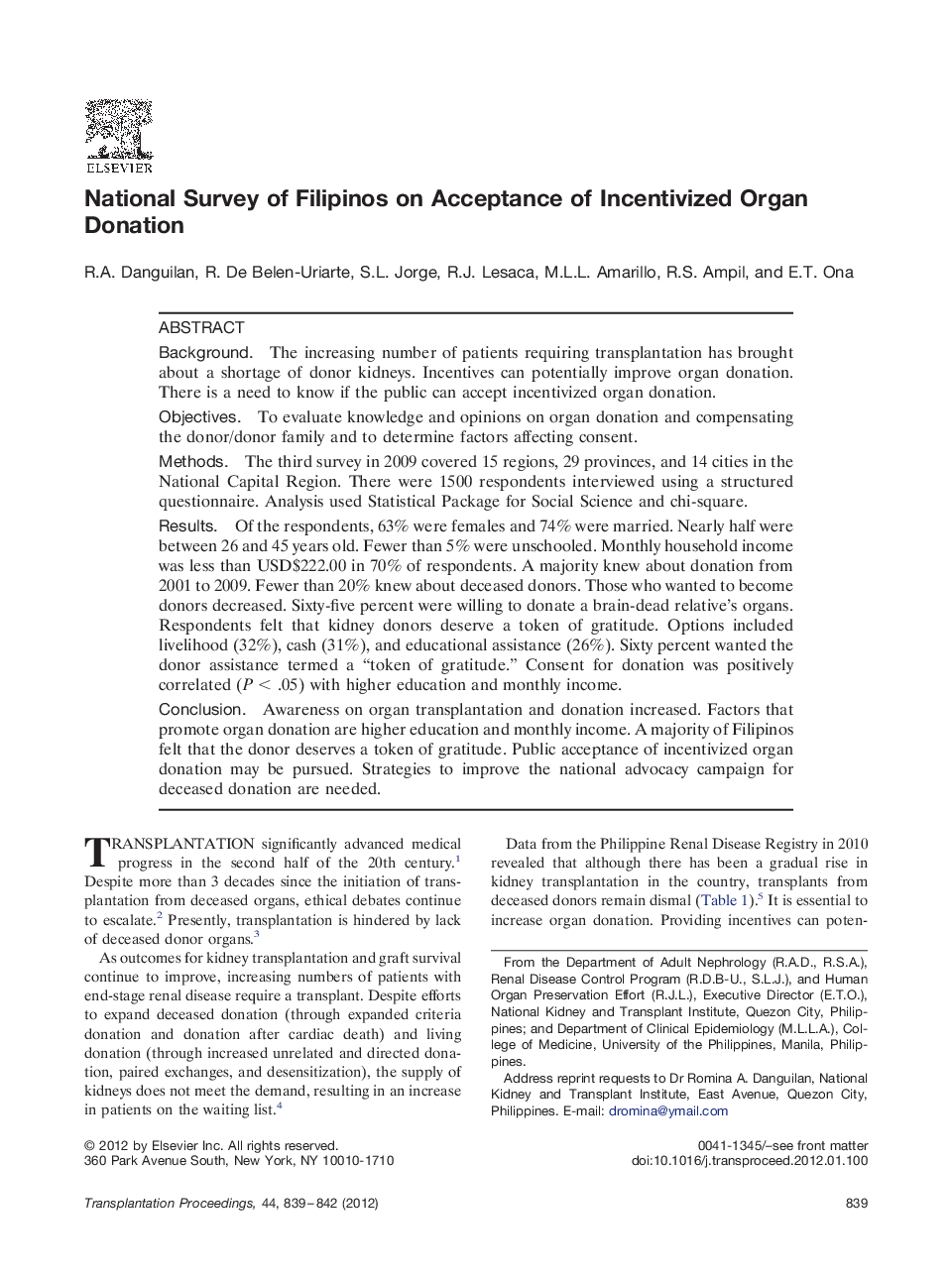| Article ID | Journal | Published Year | Pages | File Type |
|---|---|---|---|---|
| 4256800 | Transplantation Proceedings | 2012 | 4 Pages |
BackgroundThe increasing number of patients requiring transplantation has brought about a shortage of donor kidneys. Incentives can potentially improve organ donation. There is a need to know if the public can accept incentivized organ donation.ObjectivesTo evaluate knowledge and opinions on organ donation and compensating the donor/donor family and to determine factors affecting consent.MethodsThe third survey in 2009 covered 15 regions, 29 provinces, and 14 cities in the National Capital Region. There were 1500 respondents interviewed using a structured questionnaire. Analysis used Statistical Package for Social Science and chi-square.ResultsOf the respondents, 63% were females and 74% were married. Nearly half were between 26 and 45 years old. Fewer than 5% were unschooled. Monthly household income was less than USD$222.00 in 70% of respondents. A majority knew about donation from 2001 to 2009. Fewer than 20% knew about deceased donors. Those who wanted to become donors decreased. Sixty-five percent were willing to donate a brain-dead relative's organs. Respondents felt that kidney donors deserve a token of gratitude. Options included livelihood (32%), cash (31%), and educational assistance (26%). Sixty percent wanted the donor assistance termed a “token of gratitude.” Consent for donation was positively correlated (P < .05) with higher education and monthly income.ConclusionAwareness on organ transplantation and donation increased. Factors that promote organ donation are higher education and monthly income. A majority of Filipinos felt that the donor deserves a token of gratitude. Public acceptance of incentivized organ donation may be pursued. Strategies to improve the national advocacy campaign for deceased donation are needed.
